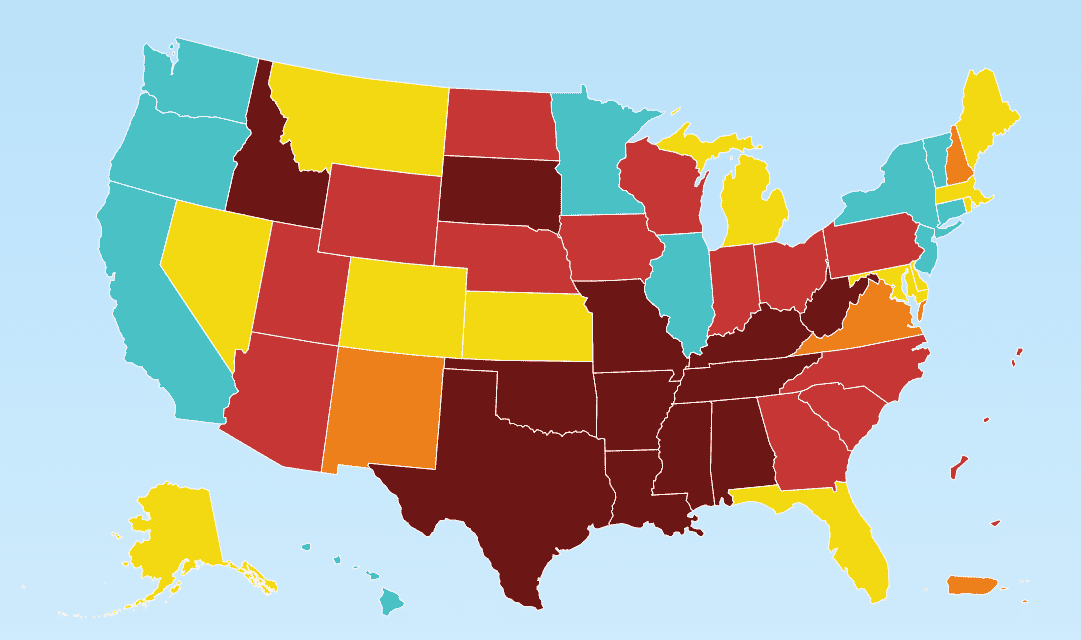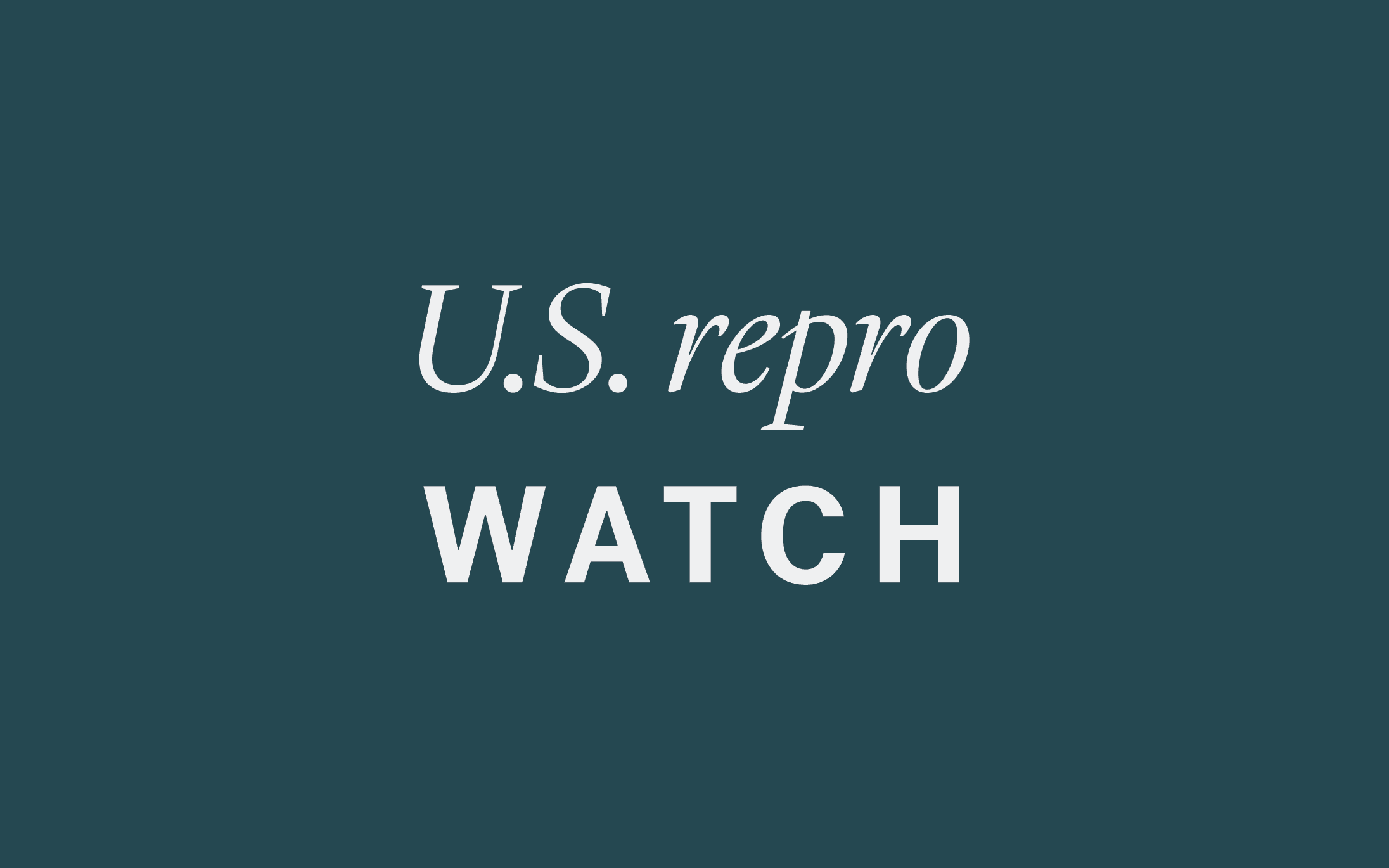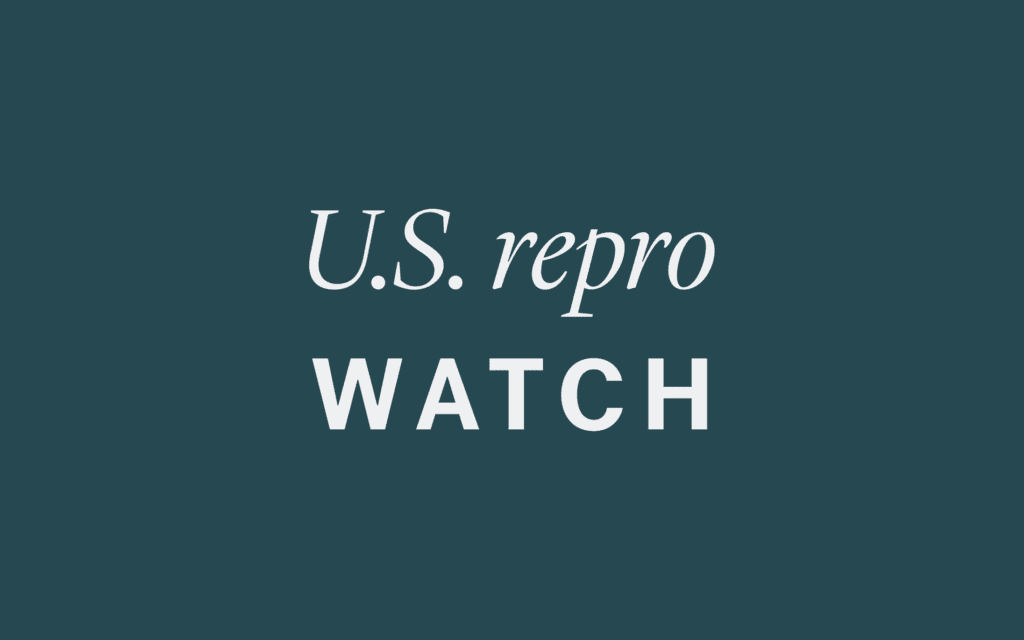U.S. Repro Watch, Feb. 1
This week's top 4 news items on U.S. reproductive rights.
“U.S. Repro Watch” provides periodic updates on news of interest on U.S. reproductive rights. Here are four recent items you won’t want to miss:
1. Several states took action recently to protect abortion access.
- Minnesota Gov. Tim Walz signed a bill enshrining the right to abortion into state law. The Protect Reproductive Options (PRO) Act establishes that “every individual has a fundamental right to make autonomous decisions about the individual’s own reproductive health.”
- New York lawmakers approved a state constitutional amendment that would enshrine abortion rights, sending it to voters. The amendment will be on the ballot in 2024.
- Oregon launched a new hotline that would offer guidance to those seeking abortions in the state.
- Georgia legislators introduced a bill that would repeal the state’s six-week ban and other restrictions on abortion access.
More on abortion laws and policies in the states.
After Roe Fell: Abortion Laws by State
Explore this interactive map to learn more about each state’s abortion laws and policies, updated in real time.
2. The U.S. House of Representatives introduced the EACH Act, federal legislation to ensure abortion coverage in federal health programs.
- The Equal Access to Abortion Coverage in Health Insurance (EACH) Act, introduced January 26, aims to reduce economic barriers to abortion access by eliminating the Hyde Amendment, which has long prohibited coverage of abortion care for those enrolled in Medicaid and other federal health insurance programs.
- It also prevents federal legislators from interfering with private insurance companies’ decisions to offer abortion coverage.
- Fifty-one percent (51%) of reproductive-age women who are covered under Medicaid and subject to abortion coverage bans are women of color.
3. Two separate lawsuits were filed on January 25 challenging restrictions on medication abortion in North Carolina and West Virginia.
- In North Carolina, a doctor asked a federal court to strike down several state restrictions on medication abortion, including a law mandating that the pills be provided in person by a physician and a mandatory 72-hour waiting period.
- GenBioPro, a company that manufactures mifepristone, filed a lawsuit in West Virginia, arguing that the state’s restrictions on federally approved medication violates the U.S. Constitution.
- Both challenges note that these medically unnecessary restrictions go far beyond the FDA’s own regulations of the medication and that federal laws supersede state laws.
4. President Biden called for further actions to protect access to medication abortion on January 22.
- The Administration directed Health and Human Services (HHS) to consider new guidance to support abortion providers, pharmacies, and patients who wish to provide or access mifepristone.
- HHS was also asked to help ensure patients can access abortion care, including medication abortion from a pharmacy, free from threats or violence.
Media highlight:
“The Connection Between Fertility Treatments and the Overturning of Roe v. Wade,” Vogue, 01.27.23
“While IVF remains legal in the U.S., the threats to providing and accessing it should not be understated,” says the Center’s Senior Human Rights Counsel Karla Torres.
Coming Up
February 10: Briefing due in the lawsuit against the FDA that could end access to abortion medication nationwide.
- The case, Alliance for Hippocratic Medicine v. FDA, filed by anti-abortion groups, seeks to revoke FDA approval of mifepristone, one of two drugs used in a medication abortion. If the court sides with anti-abortion groups, every state—including states where abortion is legal—will lose all access to medication abortion.
- Briefs must be submitted by February 10, after which point the court could issue its decision.
- Read more about the lawsuit in The Washington Post and The Nation.
Read more.
U.S. Repro Watch, Jan. 25
Read last week’s U.S. Repro Watch.
February 16: Hearing on Guam’s abortion counseling requirement.
- The Ninth Circuit Court of Appeals will hear arguments at 9AM HST/2PM ET over a law forcing physicians to give government-mandated information in person to patients before providing care. This requirement, which is currently blocked, prevents the provision of abortion pills via telemedicine.
- Abortion care is already difficult to access in the U.S. territory since the Pacific island’s last remaining abortion provider retired in 2018. Without access to telehealth abortion services, Guam residents would be forced to travel 4,000 miles each way to Hawaii just to obtain services.
Did you know?
Center in the Spotlight
Read select media coverage featuring Center leaders across the globe.
New research by the Economic Policy Institute shows how people in states with abortion restrictions face greater economic insecurity than those living in states where abortion is accessible. The study found that people in states that restrict abortion have lower minimum wages and unemployment benefits and higher rates of incarceration.
The study highlights the adverse economic consequences a person faces if denied an abortion while working a minimum wage job. Researchers warn that abortion restrictions will have severe economic consequences for millions in current and future generations, including widening income and wage inequality and racial disparities.



